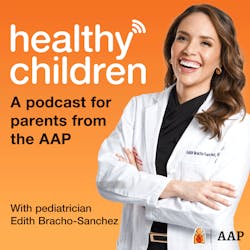West, K. M. (2024). Treating Pediatric Feeding Disorders and Dysphagia: Evidence-Based Interventions for School-Based Clinicians. Language Speech and Hearing Services in Schools, 1–14. https://doi.org/10.1044/2023_lshss-23-00016
This article addresses the growing prevalence of children with pediatric feeding disorder (PFD) and dysphagia within school-based speech-language pathology caseloads. It focuses on exploring best practices and evidence-based interventions suitable for treating these disorders in educational settings, where the goal is to support both feeding/swallowing skill development and students’ participation in school activities. The author reviewed current research and treatment methods for feeding and swallowing difficulties. The review identifies several evidence-based interventions that effectively address PFD and dysphagia in children and discusses how these can be adapted for school settings. It stresses the importance of skilled intervention to promote functional feeding and swallowing development and optimize educational participation. The article encourages clinicians to apply neuro-plasticity principles and individualized treatment planning while recognizing the need for further research to strengthen evidence-based protocols.Children with PFD and dysphagia benefit from targeted, skilled interventions delivered in schools, which support their continued feeding and swallowing skill development and overall educational engagement.
Widrich, T. J., Fournier, C., Shanmugarajah, L., & Fucile, S. (2025). Oral Feeding Management in the school setting: A scoping review. The American Journal of Occupational Therapy, 79(3), 1–9. https://doi.org/10.5014/ajot.2025.051029
This article evaluated the role of the OT in pediatric feeding within a school setting. The method utilized was the PRISMA-ScR (scoping review) framework. The article stresses the importance of multidisciplinary collaboration of the OT and the pediatric feeding team. It is within the scope of practice for the OT to provide consultative support for feeding by providing strategies and resources to the teacher and coaching parents on mealtime routine. OT’s are able to form a bridge between the medical and school teams. There is not a current gold standard for feeding assessment within the school setting. The article concludes that further research is needed for direct service type, OT educational content and training, guidelines for assessment, and IEP policy.
Heo, J. S., Kim, E.-K., Kim, S. Y., Song, I. G., Yoon, Y. M., Cho, H., Lee, E. S., Shin, S. H., Oh, B.-M., Shin, H.-I., & Kim, H.-S. (2021). Direct swallowing training combined with oral sensorimotor stimulation accelerates attainment of independent oral feeding in very preterm infants: A randomized controlled trial. Archives of Disease in Childhood: Fetal and Neonatal Edition, 106 (2), 166–173. https://doi.org/10.1136/archdischild‑2021‑321945
This randomized controlled trial evaluated the effects of direct swallowing training (DST) alone versus DST combined with oral sensorimotor stimulation (OSMS) on feeding outcomes in very preterm infants (<32 weeks gestation) who had transitioned to full tube feeds. Infants were assigned to one of three groups: a control group receiving sham interventions, a DST-only group, and a DST + OSMS group. Interventions occurred twice daily. The primary outcome was time from initiation of oral feeding to independent oral feeding (IOF). Results showed significant differences: infants in the DST + OSMS group achieved IOF in a mean of 14.8 days, significantly faster than the control (≈21.1 days) and DST-only (≈17.2 days) groups (p = 0.02). Additionally, feeding proficiency as measured by proportion of volume consumed in the first five minutes improved earlier in the combined group. DST alone did not significantly differ from control. The study concluded that integrating sensorimotor oral stimulation with direct swallow exercises can meaningfully speed up feeding progression in very preterm infants.
Yavanoglu Atay, F., Berber Ciftci, H., Sahin, O., Guran, O., Colak, D., Gok, N. R., Karakol Erdem, B., & Mungan Akin, I. (2023). Evaluation of the effect of oral motor stimulation exercises on feeding skills in premature infants. Medical Bulletin of Sisli Etfal Hospital, 57(2), 189–194. https://doi.org/10.14744/SEMB.2022.96562
The study examined the effectiveness of oral motor stimulation (OMS) exercises in improving feeding readiness and oral feeding skills in preterm infants in the NICU. This prospective, single-center cohort study included 50 preterm infants born at or before 34 weeks’ gestation. Infants were selected based on clinical stability and were receiving tube feedings at the time of intervention. Each infant participated in daily oral motor stimulation exercises provided by a trained speech therapist—one session per day, five days a week, for two weeks. These sessions included gentle stimulation of the cheeks, lips, gums, and tongue using gloved fingers and gauze. Non-nutritive sucking was also encouraged. Outcomes were measured using two tools: The Oral Feeding Skills (OFS) staging system, which tracks the infant’s progress toward safe and efficient oral feeding. A non-nutritive sucking (NNS) scoring scale, which assesses the coordination and quality of sucking behavior. The results demonstrated statistically significant improvements in both oral feeding skills and non-nutritive sucking ability over the 10-day intervention. Specifically: OFS scores increased from an average of Stage 1 at baseline to Stage 3 or 4 by Day 10 for many infants (p < 0.001), indicating substantial progress toward independent oral feeding. NNS scores also improved markedly, reflecting stronger and more coordinated suck patterns. Some infants were able to reach full oral feeding readiness earlier than expected. The authors concluded that daily oral motor stimulation exercises are a safe and effective intervention for improving oral feeding readiness in preterm infants. By enhancing non-nutritive sucking and advancing OFS stages, OMS can facilitate a smoother transition from tube feeding to oral feeding. The study supports the inclusion of structured oral motor interventions in NICU care for preterm infants with feeding delays.
Propp, R., Gill, P. J., Marcus, S., Ren, L., Cohen, E., Friedman, J., & Mahant, S. (2022). Neuromuscular electrical stimulation for children with dysphagia: a systematic review. BMJ Open, 12(3), e055124. https://doi.org/10.1136/bmjopen-2021-055124
This systematic review examined the effectiveness of neuromuscular electrical stimulation (NMES) as a treatment for pediatric dysphagia. The study included ten eligible research articles involving children aged 0-18 with swallowing difficulties. These studies utilized NMES on the throat or neck region to target oropharyngeal swallowing deficits. The review found that several studies reported improvements in swallowing function and feeding performance following NMES treatment. However, the existing research had significant limitations, including small sample sizes, inconsistent protocols, and a moderate-to-high risk of bias. Additionally, most studies did not report on important outcomes such as long-term safety, caregiver experience, or quality of life. The authors concluded that while NMES shows potential as an intervention for pediatric dysphagia, the current evidence is insufficient to recommend it for routine clinical use. They emphasized the need for larger, well-designed randomized controlled trials to determine efficacy and safety.
Barnes, C., Simpson, K. N., Wilmskoetter, J., McGhee, H., Nichols, K., & Bonilha, H. S. (2025). Qualitative Analysis of Therapist Documentation of Assessments of Orally Feeding Infants Who Require Noninvasive Respiratory Support. American Journal of Speech-Language Pathology, 34(2), 446–457. https://doi.org/10.1044/2024_AJSLP-24-00294
The aim of this article is to analyze the documentation that speech-language pathologists and occupational therapists use in reports for infants that orally feed on noninvasive respiratory support (NRS). This study used retrospective electronic health record documentation data pulled from an academic medical center. Authors looked documentation that included feeding safety, quality, and therapeutic interventions. Example feeding metrics included areas in respiration, oxygenation, signs of aspiration, feeding time, reasons for stopped feed, volumes consumed and offered. In this study a total of 37 SLP and OT bedside notes were examined. Results of the study found inconsistent documentation or missing data. The authors concluded the study with recommendations in prioritizing objective data, clarifying clinical interpretations, patient responses, trialed interventions, using structured narratives and flowcharting.
Volkert, V. M., Burrell, L., Berry, R. C., Waddle, C., White, L., Bottini, S., Murphy, M., & Sharp, W. G. (2021). Intensive multidisciplinary feeding intervention for patients with avoidant/restrictive food intake disorder associated with severe food selectivity: An electronic health record review. International Journal of Eating Disorders, 54(11), 1978–1988. https://doi.org/10.1002/eat.23602
This study looked the effectiveness of an Intensive Multidisciplinary Intervention (IMI) program for children with avoidant/restrictive food intake disorder (ARFID) and extreme picky eating. The researchers reviewed records from 63 children, who were on average around 6 years old. These children all had serious issues with eating, including refusing food and lacking essential nutrients. The IMI program involved a team of professionals, including behavioral therapists, speech and feeding therapists, dietitians, doctors, and parent coaches. They worked together to help the children improve their eating habits. By the end of the program, 60 children had completed treatment and shown significant improvements: on average, they were eating 16 more foods than when they started and accepting more than 80% of bites during structured meals. Their nutrition also improved, and most children continued to make progress even after the program ended. The study demonstrated that this team-based approach is an effective way to help children with complex feeding issues eat more, try new foods, and obtain the necessary nutrition.
Franceschetti, S., Tofani, M., Mazzafoglia, S., Pizza, F., Capuano, E., Raponi, M., Della Bella, G., & Cerchiari, A. (2024). Assessment and rehabilitation intervention of feeding and swallowing skills in children with Down syndrome using the Global Intensive Feeding Therapy (GIFT). Children, 11(7), 847. https://doi.org/10.3390/children11070847
Children with Down Syndrome (DS) often experience difficulty in oral feeding. Feeding and swallowing problems can lead to other medical issues such as dehydration, malnutrition, growth retardation, and weaker muscles. These difficulties may include poorly coordinated movement of food from the oral to the pharyngeal area, difficulty in managing solid consistency, and reduced jaw control, all of which contribute to delays in developing oral motor feeding skills. This study evaluated the effectiveness of Global Intensive Feeding Therapy (GIFT) in 20 children with DS, aged 2 to 10 years old over six months. The therapy focused on several goals, including gradual exposure to new foods through systematic desensitization, adapting food textures, improving chewing and swallowing skills, reducing dependence on infant devices such as pacifiers and bottles, addressing mealtime behavioral problems, and providing training for caregivers. The researchers used the Karaduman Chewing Performance Scale (KCPS) to measure chewing ability, which ranges from 0 (no chewing) to 4 (normal chewing), and the International Dysphagia Diet Standardization Initiative (IDDSI) levels to assess food texture tolerance. They also tracked behavioral issues, such as food refusal and disruptive behavior, during meals. The results showed significant improvements in chewing, with better KCPS scores midway and after the program. Children were able to handle more complex and firmer textures, as indicated by higher IDDSI levels, and behavioral problems decreased over time. The study concludes that GIFT is an effective intervention to improve chewing and swallowing abilities in children with DS. By combining sensory stimulation with intensive, task-specific training, the therapy supports safe progression to more advanced food textures and reduces feeding difficulties. These improvements support overall healthy nutrition and growth in the DS population.
Pérez, P. O., Arredondo, I. V., Rubio, E. T., López, M. H., López, A. R., Taillefer, P. G. H., & Navas-López, V. M. (2025). Impact of a specialized pediatric dysphagia rehabilitation program on caregiver quality of life and coping strategies. Anales de Pediatría (English Edition), 503958.
The aim of this study was the evaluate the impact of a specialized pediatric dysphagia rehabilitation program, specifically on the QoL of the caregivers. This was a quasi-experimental study with 99 dysphagic patients under age 14 who were apart of this program that provided comprehensive clinical evaluations, individualized treatment plans, and oral-motor therapy. They found that the caregivers reported higher QoL scores post-intervention (improvements in feelings of burden, fears, sleep disturbance, etc.), but even more significantly they found great improvements in the severity and oral intake of dysphagia after the program. Over 50% of children who were initially tube-fed transitioned to partial or full oral feeding. The children with more complex needs showed the most significant progress.
Mattner, M. R., Guzman, A. L., Moore , E., Fortuna, J., & Cantwell-Jurkovic, L. (2025, June 27). Responsive feeding therapy for children with pediatric feeding disorder (PFD): A scoping review. Appetite. https://www.sciencedirect.com/science/article/pii/S0195666325003642?casa_toke n=_mhn-J0VINgAAAAA%3AToZdxqAt-YVH07I1nV8Mq0c4SkULQ1UxGJ62kClx7j 6rn0Jy1vLF_m4-wq_8tKsSIVlt7zaJxV4
The aim of this article was to explore existing literature and research on responsive feeding interventions for children with PFD. The methods used were descriptive statistics and qualitative content analysis. The results showed a great use of environmental supports and caregiver education to strengthen the bond for those relationships especially during feeding. The conclusion stated that caregiver education and coaching allows for the best outcome in feeding therapy for pediatric patients
Related









